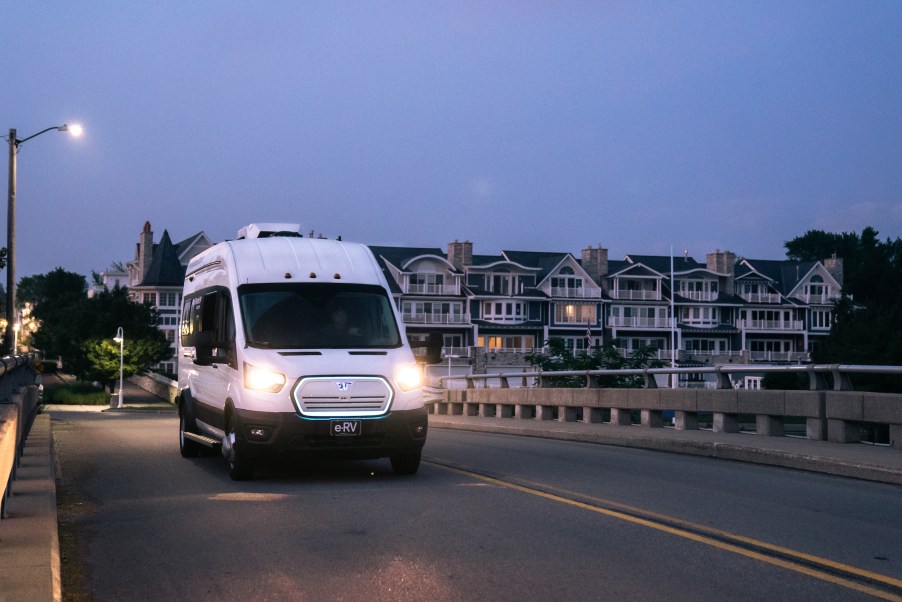
The 5 Benefits of Electric RVs Probably Won’t Surprise You
Going RV camping and vacationing often includes a steep fuel bill incurred on the way to your destination. As a result, one of the most common questions heard by RV owners is, “How much fuel does that thing use?” But a new wave of electric camper vans and RVs on the horizon could change that or, at least, replace the old questions with new ones and provide some substantial benefits.
Benefit #1: Electric RVs have innovative designs
RV Trader reports three electric RV models could hit the market by 2023, including one from Winnebago and two from Thor Industries. The Winnebago eRV is an entirely electric Class B campervan that puts out zero emissions. In addition, it contains all the comforts of home for camping or road-tripping adventures, including a refrigerator, water heater, and an electric cooktop. You can even use your tablet or smartphone to control the electric RV’s systems without getting out of bed or off the couch.
The Thor Vision, an electric RV prototype, is a large Class B hybrid featuring a drivetrain powered by solar panels, a fuel cell, and a battery working together to provide up to 300 miles of driving range. In addition, the Vision promises fully integrated technology between the vehicle’s cockpit and your smartphone, allowing constant battery monitoring and information on upcoming charging stations.
Thor’s other electric RV prototype is the Airstream eStream. The eStream is a towable travel trailer reminiscent of classic Airstream trailers. However, this isn’t your grandparents’ Airstream. Instead, it features a battery-powered electric drivetrain capable of providing thrust to assist its tow vehicle when accelerating and driving, much like a hybrid vehicle.
The eStream uses regenerative braking to recharge its battery under braking and can move under its own power via remote control. The remote control function eliminates the need for using your tow vehicle to back the eStream into a campsite.
Benefit #2: You can charge an electric RV at home
One of the basic steps on any RV pre-departure checklist is to fill the vehicle with fuel. This added step takes time and can lead to a potential disaster while maneuvering a large RV around fuel pumps and other vehicles. The good news is that electric RVs with home charging capabilities eliminate this step, ensuring that the RV is fully charged and ready for departure when you are.
Benefit #3: No fuel stops
Removing fuel stops from your travel day eliminates the stress that comes with pulling into fuel station pumps. Instead, savvy electric RV travelers will plan their trip to take advantage of their electric RV’s range. This can be done by stopping at charging stations for a quick charge or camping along the way to recharge their batteries as needed.
Benefit #4: These RVs require less maintenance

The absence of an internal combustion engine drivetrain removes the need for routine oil changes, fuel system maintenance, and transmission flushes. In addition, you will not need to get under the hood to check the oil or antifreeze level or top them off. Finally, an electric RV does not have a catalytic converter to tempt thieves with.
Benefit #5: Eco-friendly
Electric RVs, especially those that employ solar panels and fuel cells to reduce their impact on electrical grids, are eco-friendly. As lovers of the outdoors, most will agree that any attempt to reduce our carbon footprint is a step in the right direction.
Are electric RVs the future of camping?
As with most EVs, improvements to EV battery range, charging infrastructure, and popularity will lead to increased electric RV acceptance. Of course, as the market for electric RVs grows, so will the available electric RV options.



